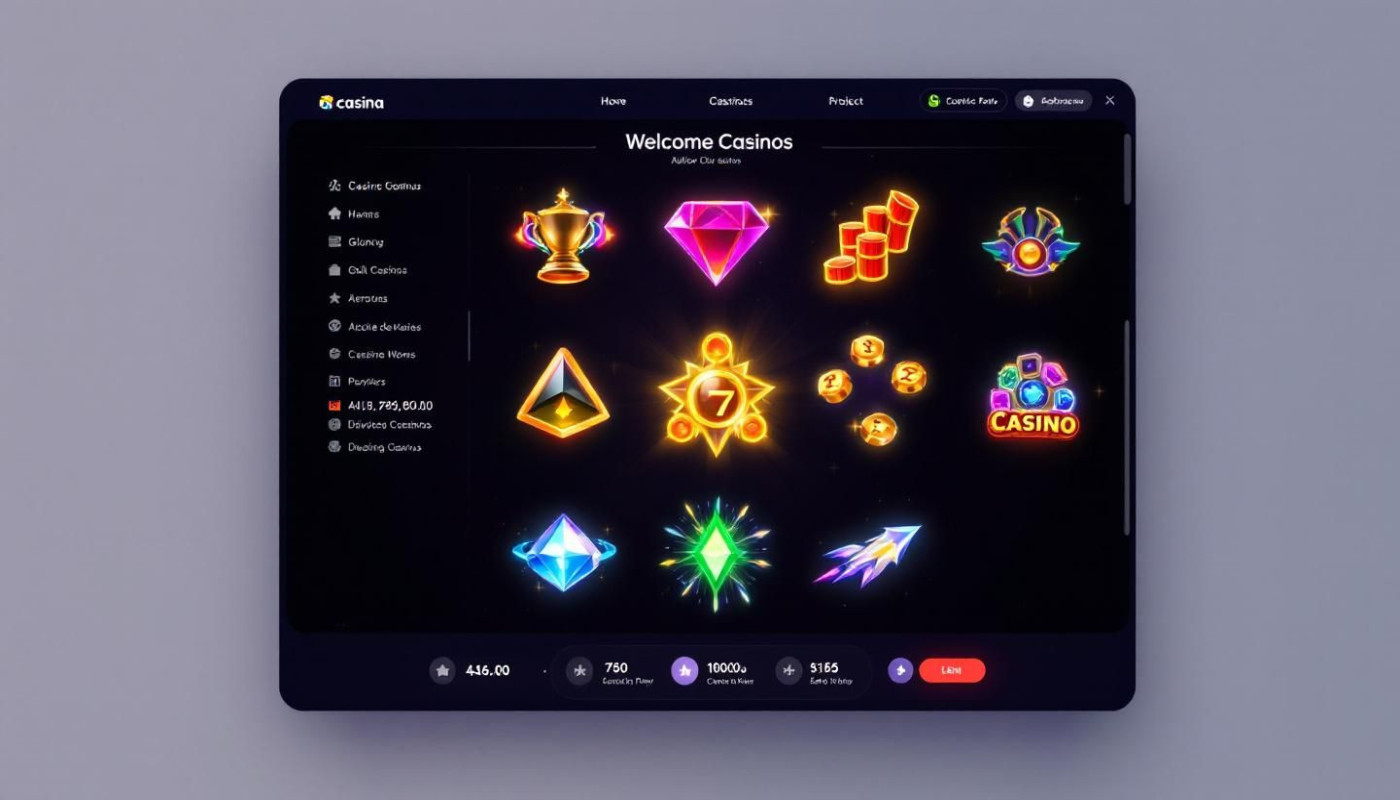Table of contents
The world of online gaming is experiencing a dynamic transformation as alternative platforms emerge and gain momentum. These innovative spaces are not only changing how games are played and accessed, but they are also influencing the overall culture of digital entertainment. Dive deeper into this exploration to uncover what drives their popularity and what sets them apart, as the landscape of virtual play continues to evolve.
Shifting dynamics in online gaming
The online gaming landscape is undergoing rapid transformation as alternative gaming platforms gain traction, reshaping how digital entertainment is consumed and experienced. These platforms are attracting a diverse range of players, extending beyond the conventional demographic of younger males to include older adults, women, and global audiences. This diversification is fueling advanced user engagement strategies, with cross-platform integration allowing seamless interaction across devices and ecosystems. As a result, gaming communities are becoming more interconnected, vibrant, and inclusive, encouraging collaborative play and social interaction that transcends the boundaries set by traditional systems.
Recent online gaming trends indicate a marked shift away from legacy console and PC-based environments toward flexible, browser-based, and mobile experiences. Alternative gaming platforms are leveraging cloud technology and innovative matchmaking algorithms to facilitate immediate access, personalized content, and richer social features. By lowering barriers to entry and supporting a wide array of devices, these solutions empower users to participate in gaming communities from virtually any location. This evolution is not just redefining entertainment preferences but is also setting new standards for how players interact, compete, and connect within the digital entertainment ecosystem.
Innovation in monetization models
Alternative online gaming platforms have revolutionized gaming monetization by introducing diversified revenue models that go beyond traditional pay-to-play. Subscriptions have become increasingly popular, providing players with ongoing access to exclusive content and features for a recurring fee, fostering community loyalty and predictable income for developers. Microtransactions allow users to purchase virtual assets such as skins, power-ups, or customizations, encouraging continuous engagement and offering a tailored player experience. Tokenization, a feature of blockchain-based economies, is changing the digital economy by enabling true ownership and trade of virtual assets, with transparent transaction histories and secure value exchanges.
These innovative approaches to gaming monetization have significant implications for both developers and players. Developers benefit from a more stable and diversified revenue stream, reducing reliance on single-purchase models and opening avenues for ongoing content development. Players, meanwhile, enjoy increased customization, a sense of ownership, and flexible spending options. However, microtransactions and tokenized assets can also introduce challenges, such as balancing gameplay fairness and preventing exploitative practices. The digital economy within these platforms is thus a dynamic environment, requiring careful regulation and transparency to safeguard interests.
The evolution of these monetization strategies is also evident in sectors adjacent to gaming, such as online gambling. Platforms offering information on what gambling sites are not on GAMSTOP demonstrate similar trends, leveraging digital economies and microtransactions to attract users seeking alternative gaming or betting experiences. As the landscape continues to evolve, the interplay between subscriptions, microtransactions, and tokenization will remain central to shaping the future of alternative online gaming platforms.
Enhanced player-driven experiences
Alternative online gaming platforms are reshaping digital entertainment by placing increased control in the hands of the players, notably through player customization, robust modding communities, and an explosion of user-generated content. These platforms often provide a sandbox environment, allowing users to modify game worlds, create unique assets, or even design entirely new gameplay experiences. This shift fundamentally redefines the player-developer relationship, as the Lead Community Architect now collaborates more closely with the community, facilitating tools and frameworks that foster gaming innovation. The outcome is a richer, more diverse selection of experiences, as creators from around the globe share and iterate on each other’s work.
Such empowerment significantly boosts community engagement, as players not only consume but actively shape game content. Players form tight-knit modding communities where knowledge and resources are shared, accelerating the pace of innovation and enhancing the overall quality of user-generated content. The presence of these communities acts as a catalyst for content diversity, as games continuously evolve with new campaigns, challenges, and aesthetic options, driven by direct input from the playerbase rather than solely from developers.
This ecosystem creates a feedback loop: as more customization and modding options become accessible, the platform attracts a broader audience interested in both playing and creating. These dynamics have established alternative platforms as hotbeds of gaming innovation, setting new standards for engagement and transforming how games are developed, updated, and enjoyed. By leveraging sandbox environments and prioritizing community-driven features, these platforms ensure that content diversity thrives, keeping experiences fresh and relevant for a global audience.
Security and privacy challenges
Alternative online gaming platforms have rapidly expanded their reach, attracting both enthusiastic players and the attention of malicious actors. With this growth comes heightened exposure to cyber threats, including data breaches, account hijacking, and fraudulent activities, all of which can compromise gaming security and online privacy. Players often share personal and financial information while interacting with these platforms, making them appealing targets for cybercriminals. As a result, maintaining robust data protection standards has become a top priority for both users and platform providers.
One significant concern surrounds the storage and transmission of user data. Without proper safeguards, sensitive information such as login credentials, payment details, and in-game assets can be intercepted or stolen. Alternative platforms, in response, are increasingly implementing advanced security protocols like end-to-end encryption to ensure that only intended recipients can access user data. This approach helps curb unauthorized access but must be consistently updated to counter evolving attack techniques.
Fraudulent schemes also threaten the integrity of safe gaming environments. Phishing attacks, fake tournaments, and counterfeit digital goods can lead to significant financial losses for unsuspecting players. To combat these risks, platform developers are deploying multi-factor authentication, monitoring systems for suspicious behavior, and providing transparent security policies. The Chief Information Security Officer often advises on continuous risk assessments to identify vulnerabilities before they are exploited.
Players play a pivotal role in reinforcing their own online privacy and security while gaming. By using strong, unique passwords, enabling two-factor authentication, and remaining vigilant against unsolicited communications, individuals can minimize their exposure to cyber threats. Regularly updating devices and relying on reputable gaming platforms further contribute to a safer and more enjoyable experience. As the online gaming landscape evolves, both providers and users must collaborate to uphold the highest standards of gaming security and data protection.
Future outlook for online gaming
As the future of gaming continues to unfold, alternative online gaming platforms are expected to play a transformative role in shaping the landscape. Recent gaming industry trends indicate a rapid evolution driven by the adoption of emerging technologies such as immersive technology, cloud-based gaming, and decentralized servers. These advancements promise to deepen user engagement, allowing players to experience virtual worlds that are increasingly interactive and personalized. The Director of Gaming Research notes that these platforms are not only expanding the boundaries of traditional gameplay but also fostering vibrant, globally connected communities, changing how individuals perceive and participate in online gaming evolution.
Looking forward, the impact of alternative platforms is likely to extend beyond entertainment, influencing areas like social interaction, digital economies, and even education. With immersive technology at the forefront, future developments may include more realistic avatars, dynamic storylines that respond to player decisions, and seamless integration across devices. These innovations are poised to redefine the future of gaming by making virtual worlds more accessible and engaging. As these trends gain momentum, both developers and players can anticipate an era where gaming is more than a pastime—it becomes a multifaceted platform for creativity, collaboration, and cultural exchange.
Similar articles

Exploring The Reliability And Safety Of Popular Online Casino Games

Exploring The Benefits And Risks Of Casinos Not Licensed In The UK

Comparing Top-rated Affiliate Casinos: What Sets Them Apart?

Exploring The Impact Of CAPTCHA Alternatives On User Experience

Exploring The Evolution And Strategy Of Online Mini-Games

Strategies To Master Your Skills In Popular Crash Games

How To Safely Navigate The World Of Online Gambling

Exploring The Latest Trends In Online Entertainment Platforms

Exploring Traditional Japanese Crafts Through Modern E-commerce Platforms

Understanding The Impact Of Digital Currencies On Online Gambling

FAQs About Online Gambling: Everything Newcomers Need To Know

What Makes A User-friendly Online Gaming Interface?

Exploring The Evolution Of Live Casino Games Since 2019

The Rise Of Mini-Games In Online Casino Platforms

Exploring The Evolution Of Online Casino Games In 2024

Exploring The Benefits Of Online Gaming Platforms: Bonuses, Game Variety, And User Experiences

Analyzing Winning Patterns in Blackjack

How AI is Reshaping the Gambling Industry

Exploring the Hidden World of Online Gambling

The Psychological Triggers of Roulette

